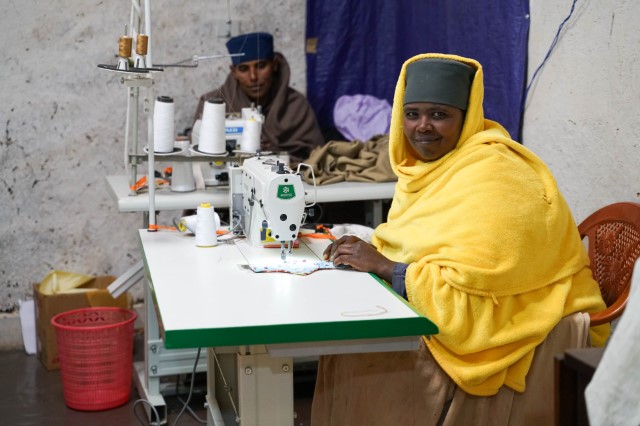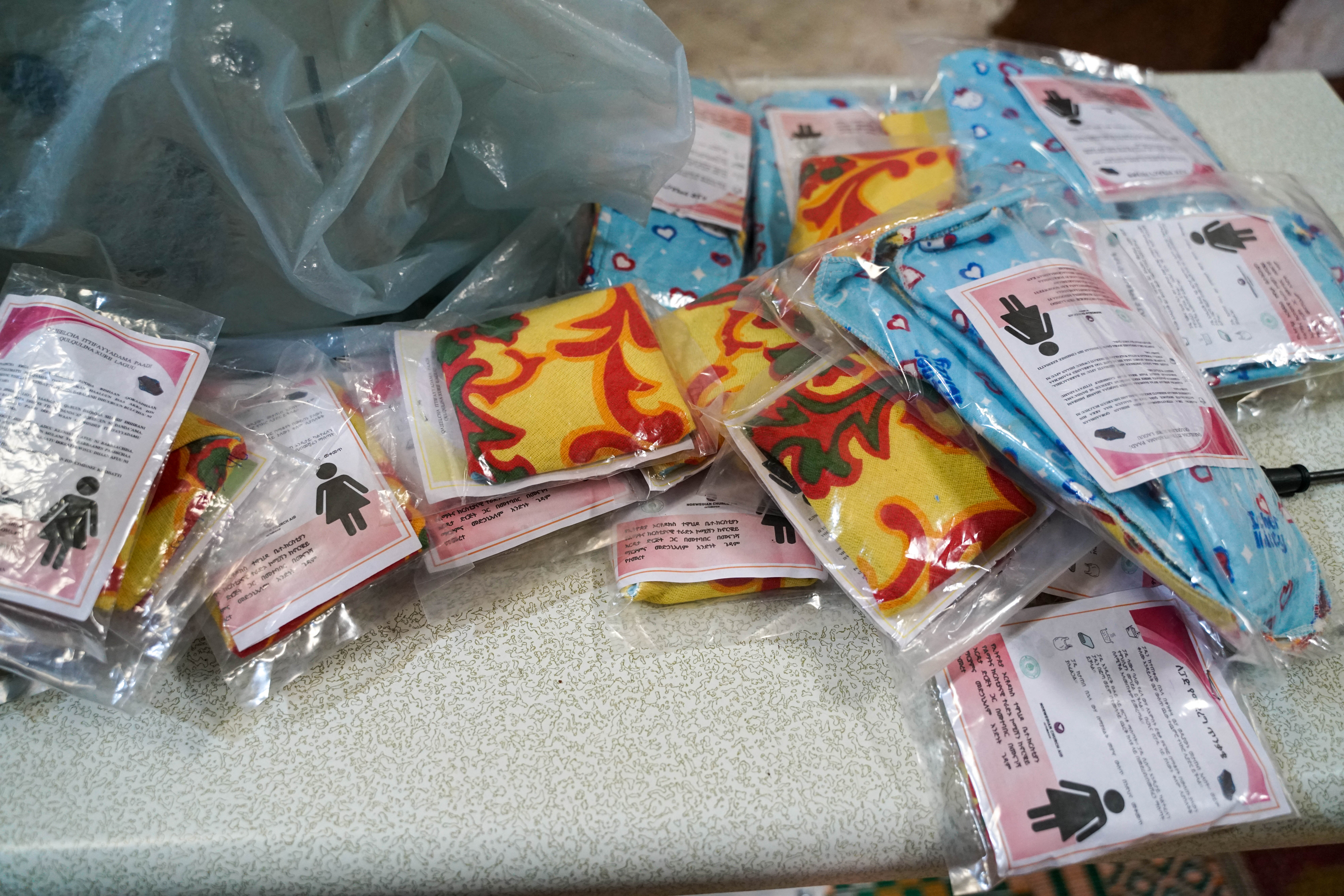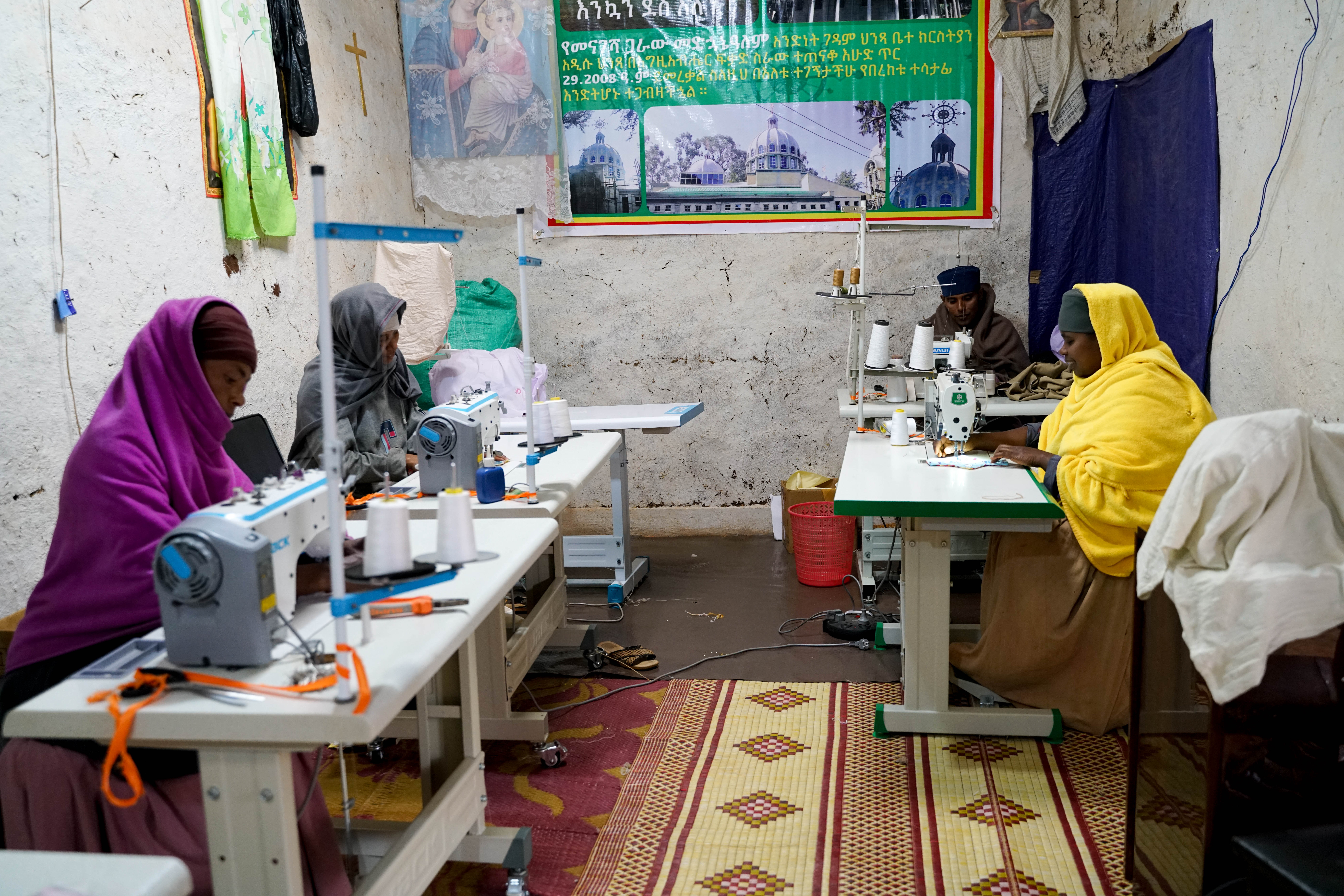
”When I first had my period, it was difficult. I even hid for days during that time because I was afraid to talk about it," says Emahoye Welete Yohanese Mintesinote.
Emahoye Welete Yohannes, 43 years old, lives in Menagesha Gara Medhanialem and Amba Mariam Monastery in Wolmera Woreda, Oromia regional state, Ethiopia.
During her menstruation, she sometimes used disposable sanitary pads but the disposable sanitary pads were very expensive for her costing 50 to 60 birr per month.
“I even used my clothes when I didn`t have money for disposable sanitary pads," she says.

Mengagsha Monastery is the first monastery in Ethiopia to start producing reusable sanitary pads for women in their community thanks to NCA`s Menstrual Hygiene Management intervention.
But when she used clothes, they were difficult to wash. The stains were hard to remove and to dry them Emahoye often hung them in her room and covered them with other clothing so that others would not see the stains. In addition, Emahoy says she was not comfortable and required frequent adjusting as she could not move around and engage in tasks as she normally would.
As there has not been access to tap water inside the Monastery, Emahoye shares that having water to clean her menstrual clothes and herself has been a challenge as she is entitled to only 20 liters of water every four days. Usually, she goes with her fellow nuns to the nearby river, although it is not safe and clean, since the water that is allocated to them is not sufficient.
In Ethiopia, 25% of girls cannot access any menstrual health products during their periods and 17% of girls in Ethiopia have reported missing class while on their periods.
In 2022, as part of the Climate Resilient WASH Programme, NCA Ethiopia together with the EOC-DICAC project provided Emahoye Welete Yohannes and the other four nuns in the Monastery with five days of training on how to create reusable sanitary pads.
Sewing machines and initial consumables were also given to them. Now the nuns are able to produce up to 200 reusable pads and sell up to 30 reusable pads. In addition, they provide reusable sanitary pads free of charge to women and girls with low incomes.

Emahoye has also started using the product. She says it is cheaper, easy to clean, and comfortable to move around with so that she can do her day-to-day activities. She notes that the feedback they are getting from their customers is also encouraging.
“We have a plan to modify the quality of our products as we practice more, and we are very enthusiastic to produce and engage in large-scale production," says Emahoye Welete Yohannes.
In the future, she hopes for their primary market to focus on girls in school. Since this is a huge market available in the locality in addition to assisting girls who usually miss school 3-5 days every month when they are having their periods by providing them cost efficient and reusable sanitary pads.
Since NCA started implementing the Menstrual Hygiene Management component in its WASH programme, six microenterprises have been established and engaged in reusable sanitery pad production.
In addition to the menstrual hygiene management intervention, the project funded by the Balder Foundation has completed the drilling of a borehole/ water well and currently finalizing the next phase of constructing a reservoir and distribution system.
When completed, the water well will contribute to the long-standing water supply problem in the Monastery and its surroundings and will benefit 6630 people, of which 60% are female.
Mengagsha Monastery is one of 3,000 monasteries in Ethiopia. It is the only one engaged in producing reusable sanitary pads known to date. As there are a significant number of young women in reproductive age in the monastic community who have no access to dignified materials to manage menstruation, this intervention has demonstrated the need to scale up the practice to the remaining monasteries in the country.

Published: